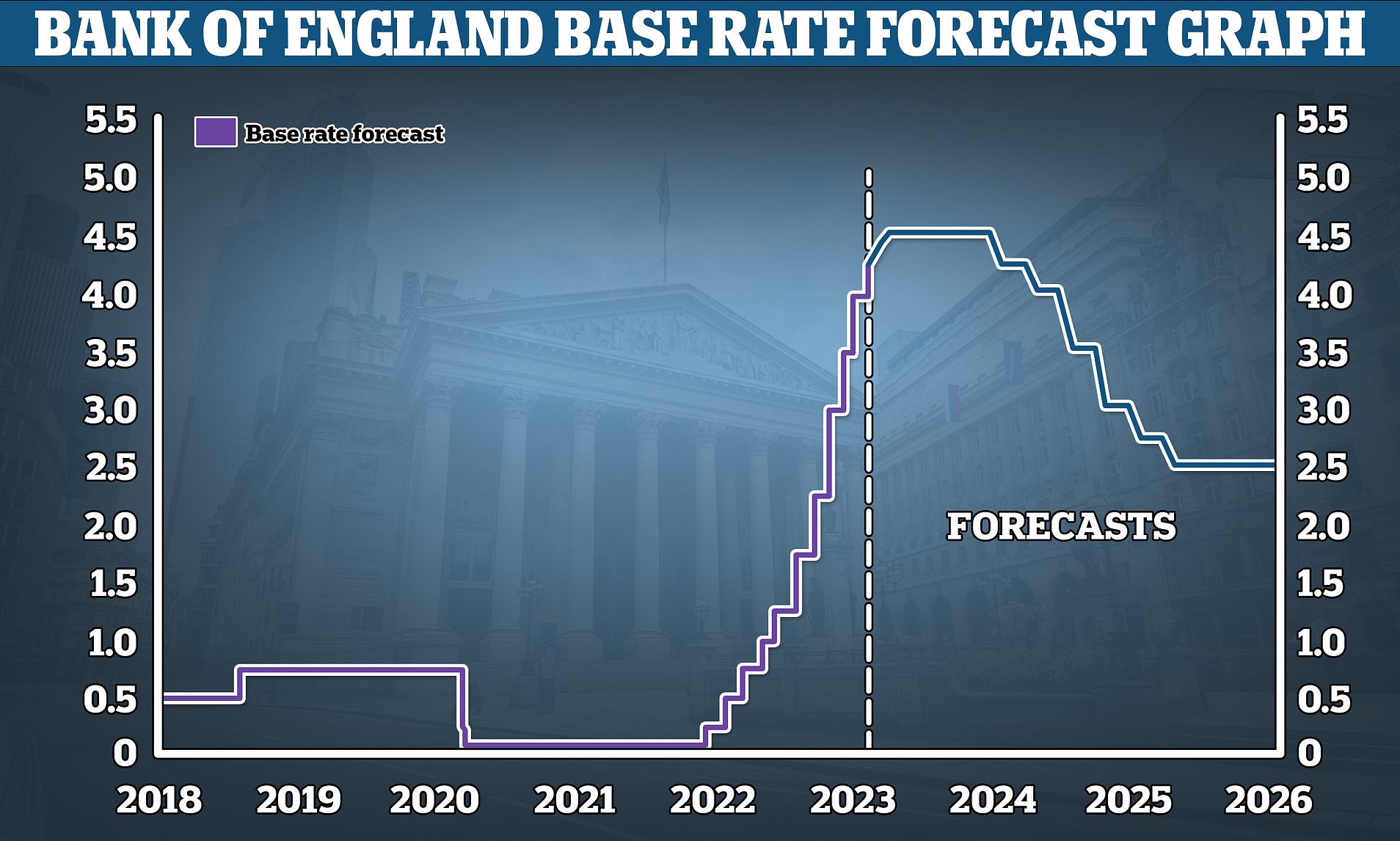Sharpest HKD/USD Interest Rate Decline Since 2008: Analysis And Outlook

Table of Contents
Causes of the Sharp HKD/USD Interest Rate Decline
Several factors contributed to this dramatic HKD/USD interest rate decline. Understanding these causes is crucial for predicting future trends and mitigating potential risks.
The Role of US Monetary Policy
The US Federal Reserve's (Fed) monetary policy plays a pivotal role in influencing USD interest rates, and consequently, the HKD.
- Quantitative Easing (QE): The Fed's past QE programs injected massive liquidity into the US financial system, suppressing USD interest rates. This had a knock-on effect on the HKD, given its linked exchange rate system.
- Interest Rate Hikes/Cuts: The Fed's decisions regarding interest rate hikes and cuts directly impact the USD's value and attractiveness to investors. Recent interest rate cuts, for example, can weaken the USD and put downward pressure on HKD interest rates.
- Inflation: High inflation in the US can lead the Fed to raise interest rates to combat it, indirectly impacting the HKD/USD exchange rate. Conversely, lower inflation might lead to lower rates. The interplay between US inflation and the Fed's response is a key driver of the HKD/USD relationship.
The Hong Kong Monetary Authority (HKMA), responsible for managing the HKD, closely monitors these US monetary policy shifts and their effects on the local currency.
Impact of Global Economic Uncertainty
Global economic uncertainty significantly influences the HKD/USD exchange rate.
- Geopolitical Risk: Rising geopolitical tensions, such as the ongoing war in Ukraine, can create uncertainty in global markets, influencing investor sentiment and affecting capital flows into and out of Hong Kong. This can impact the HKD/USD exchange rate.
- Supply Chain Disruptions: Global supply chain disruptions, as experienced during the pandemic, contribute to inflationary pressures and economic uncertainty, which can lead to volatility in the HKD/USD rate.
- Recessionary Fears: Concerns about a global recession can trigger a flight to safety, potentially boosting demand for the USD and putting downward pressure on the HKD. The resulting volatility impacts the HKD exchange rate.
HKMA Intervention and the Linked Exchange Rate System
The HKMA maintains a linked exchange rate system, pegging the HKD to the USD within a narrow band. This system aims to provide stability but requires active management.
- Currency Board System: The HKMA operates under a currency board system, meaning it maintains sufficient foreign currency reserves to back the HKD. This commitment to the peg influences the HKD/USD rate.
- Intervention Mechanisms: To maintain the peg, the HKMA intervenes in the foreign exchange market, buying or selling US dollars to keep the HKD within its trading band. The frequency and scale of these interventions can impact the interest rate differential between the HKD and USD.
Impact of the Decline on Hong Kong's Economy
The sharp HKD/USD interest rate decline has broad-ranging consequences for Hong Kong's economy.
Implications for Businesses
Lower interest rates generally reduce borrowing costs for businesses, potentially boosting investment and economic activity.
- Reduced Borrowing Costs: Lower interest rates make it cheaper for businesses to borrow money, encouraging investment in expansion and new projects.
- Increased Investment: The availability of cheaper credit can spur business investment, boosting economic growth.
- Corporate Profits: While lower borrowing costs are beneficial, businesses also need to consider the impact on their revenue streams and profit margins in relation to currency fluctuations.
Effects on the Property Market
The already buoyant Hong Kong property market is sensitive to interest rate changes.
- Property Prices: Lower interest rates can potentially fuel further increases in property prices, making homeownership more expensive for many.
- Mortgage Rates: Lower interest rates translate to lower mortgage rates, potentially increasing demand for property.
- Real Estate Investment: Lower borrowing costs may encourage more investment in the real estate sector, pushing prices higher.
Consequences for Consumers
Lower interest rates can impact consumer behavior in various ways.
- Consumer Spending: Lower interest rates can encourage consumer spending as borrowing becomes cheaper.
- Consumer Confidence: The impact on consumer confidence can be positive or negative depending on other economic factors.
- Savings Rates: Lower interest rates on savings accounts might lead to reduced savings and increased spending.
Outlook and Predictions for the HKD/USD Exchange Rate
Predicting future exchange rates is inherently challenging, but analyzing current trends offers some insights.
Short-Term Projections
Short-term projections for the HKD/USD exchange rate depend heavily on several factors, including future Fed decisions on interest rates and the persistence of global economic uncertainty.
- Potential Scenarios: Several scenarios are possible, ranging from continued stability within the existing band to potential minor fluctuations based on market sentiment and economic data.
Long-Term Implications
The long-term implications of the current trend require careful observation of several factors.
- Economic Diversification: Hong Kong's economic diversification efforts might mitigate the impact of HKD/USD fluctuations in the long run.
- Global Economic Conditions: The overall health of the global economy and the policies of major central banks will be crucial in determining the long-term trajectory of the HKD/USD exchange rate.
Conclusion
The sharpest decline in HKD/USD interest rates since 2008 presents a complex situation with both opportunities and challenges for Hong Kong. While lower interest rates can stimulate economic activity and benefit certain sectors, potential risks associated with inflation and property market volatility need careful consideration. Understanding the causes and implications of this decline is crucial for navigating the evolving economic landscape. Stay informed about further developments in the HKD/USD exchange rate and its impact on the Hong Kong economy. Continue to monitor the HKD/USD interest rate and its effects on Hong Kong's financial stability.

Featured Posts
-
 Food Delivery War Uber Files Lawsuit Against Door Dash For Anti Competitive Practices
May 08, 2025
Food Delivery War Uber Files Lawsuit Against Door Dash For Anti Competitive Practices
May 08, 2025 -
 Hetimi I Uefa S Ndaj Arsenalit Per Ndeshjen Me Psg Cfare Ndodhi
May 08, 2025
Hetimi I Uefa S Ndaj Arsenalit Per Ndeshjen Me Psg Cfare Ndodhi
May 08, 2025 -
 Qwmy Hyrw Aym Aym Ealm Kw Khraj Eqydt 12 Wyn Brsy Ky Yad
May 08, 2025
Qwmy Hyrw Aym Aym Ealm Kw Khraj Eqydt 12 Wyn Brsy Ky Yad
May 08, 2025 -
 New Uber Shuttle 5 Rides From United Center For Fans
May 08, 2025
New Uber Shuttle 5 Rides From United Center For Fans
May 08, 2025 -
 Thunder Grizzlies Showdown Key Game Preview And Prediction
May 08, 2025
Thunder Grizzlies Showdown Key Game Preview And Prediction
May 08, 2025
